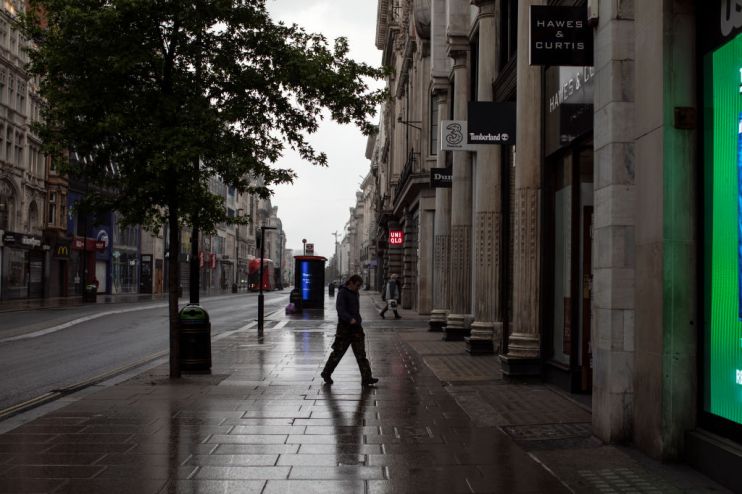Brits’ optimism tumbles to new depths, below financial crisis and Covid-19 lockdowns

Rampant inflation, tax hikes, swelling food and energy bills and the Russia-Ukraine war has sent Brits’ optimism to its lowest level ever, reveals a closely watched survey published today.
UK households are now even more pessimistic than they were when the world was in the teeth of the global financial crisis in 2008 and during the height of the pandemic.
Consumer confidence dipped two points over the last month to minus 40 in May, the lowest level recorded since researcher GfK started tracking the numbers in 1974.
The fresh figures add to the tranche of gloomy data released recently that indicates the UK economy is likely to tip into a recession soon.
Inflation scaled to its hottest rate in forty years last month, climbing to nine per cent, the Office for National Statistics said on Wednesday.
Regular pay adjusted for price rises is dropping at the quickest rate in around a decade, according to new jobs numbers published on Tuesday.
Households’ confidence in the UK economy has swung from a positive reading to a deeply negative one over the last 12 months, underscoring the rapid deterioration in the country’s economic health.
Just at the start of 2022, the world’s top forecasters were upbeat about growth this year.
However, a tighter than expected cost of living squeeze has prompted the International Monetary Fund, Bank of England and Office for Budget Responsibility to downgrade UK GDP growth forecasts for this year.
In fact, the Bank expects the UK economy to shrink 0.25 per cent in 2023. Its chief, Andrew Bailey, sounded an “apocalyptic” alarm on rising food prices caused by supplies being marooned in Ukraine due to the war.
“Consumer confidence is now weaker than in the darkest days of the global banking crisis, the impact of Brexit on the economy, or the Covid shutdown,” Joe Staton, client strategy director at GfK, said.
Confidence is unlikely to recover any time soon due to the cost of living crisis now rolling through its worst period.
Last month, a 54 per cent uplift to the energy price cap landed, as did a 1.25 percentage point national insurance hike.
The Bank has also lifted interest rates from 0.1 per cent to a 13-year high of one per cent in a bid to ease inflation. The City expects the central bank to keep raising rates this year.
Price rises are likely to cool over the summer, but then surge again in the autumn due to the energy watchdog raising the bill cap a further 34 per cent in October.
That upgrade will push inflation above 10 per cent, the Bank of England thinks.
“The outlook for consumer confidence is gloomy, and nothing on the economic horizon shows a reason for optimism any time soon,” Staton added.
Chancellor Rishi Sunak has hinted additional support for households is coming soon, potentially via an income tax or VAT cut.
It has also been reported the Treasury is mulling expanding the winter fuel allowance to channel support to the poorest households.